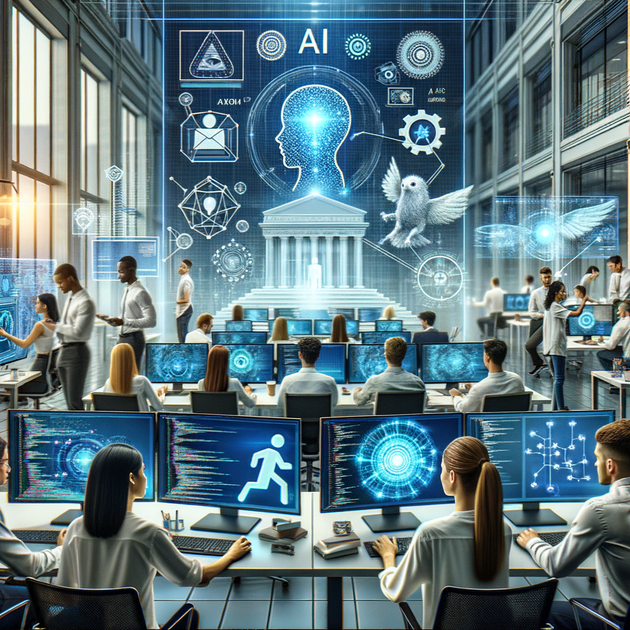Why Digital Natives Are Transforming Government AI Engineering Teams
Understanding the Edge of Digital Natives in Government AI Teams
AI technology has evolved rapidly, but its full potential is yet to be harnessed effectively. One significant trend in this development is the emergence of digital natives—those who have grown up surrounded by technology. This gives them a unique edge in government AI engineering teams.

By AI Trends Editor, John P. Desmond
With their upbringing in an environment where devices like Alexa and self-driving cars are commonplace, digital natives bring a different level of expectation and capability into the AI workforce. This was a core theme of a recent panel discussion at AI World Government.

The Cultural Maturity Gap
Dorothy Aronson, CIO and Chief Data Officer for the NSF, highlights a critical point: while the technology is within reach, our cultural maturity in using these tools is lagging. “It’s like giving a sharp object to a child,” she says, indicating the need for careful and ethical handling of big data and AI.
Accelerating Expectations and Compute Power
Panel member Vivek Rao, a researcher at the University of California, Berkeley, emphasized the rapid advancements in AI capabilities. What once was a significant research paper topic in natural language processing is now a homework assignment for students who are “digital natives”. This generation comes with high expectations and an eagerness to push boundaries.

Government’s Unique AI Challenges
Moderator Rachel Dzombak queried the panelists on the distinct aspects of working with AI in government settings. According to Aronson, while the government needs to stay abreast of technological developments, it also has to ensure that users can interact effectively with these innovations. The convergence of emerging and retiring generations presents a unique challenge.
Aronson recounts how her perception of government work evolved. Initially skeptical, she found that federal employees are deeply motivated by the mission of solving large-scale societal issues like equity, diversity, and public safety.
Students Discover AI’s Role in Government
Vivek Rao shared an enlightening story about his UC Berkeley students, who developed a newfound appreciation for government roles in addressing challenges such as wildfires. A course on innovation in disaster response, developed in collaboration with CMU and various government bodies, significantly changed their career perspectives.
Remarkably, the number of students interested in federal government careers quintupled by the end of the course, demonstrating the profound impact of experiential learning.
Key Qualities for AI Engineering Teams

Bryan Lane of the General Services Administration emphasized the importance of resiliency in AI teams. Teams must be prepared for unexpected challenges, and alignment on the mission’s significance is crucial for cohesion.
He also pointed out the value of psychological safety, where team members feel comfortable admitting their knowledge gaps, creating opportunities for collaborative problem-solving and growth.
Building Effective AI Teams
Building a successful AI team involves bringing together diverse skill sets and perspectives. Both Aronson and Lane stress the importance of focusing on problem-solving over tools. Lane prefers setting up cross-functional teams, which, though more structured than communities of practice, foster deeper collaboration and learning.
Aronson and Lane believe that within five years, structured best practices and proven methods will significantly enhance the effectiveness of AI systems in government operations.
The Path Forward
The future of government AI engineering looks promising with digital natives leading the charge. These young professionals bring not only technical expertise but also a fresh mindset towards innovation and problem-solving.
As AI continues to integrate into more aspects of daily life, a balance of innovation, ethical consideration, and cultural maturity will be essential. The insights shared by leading experts at AI World Government show that with the right mindset and collaborative effort, significant advancements in government AI engineering are on the horizon.
